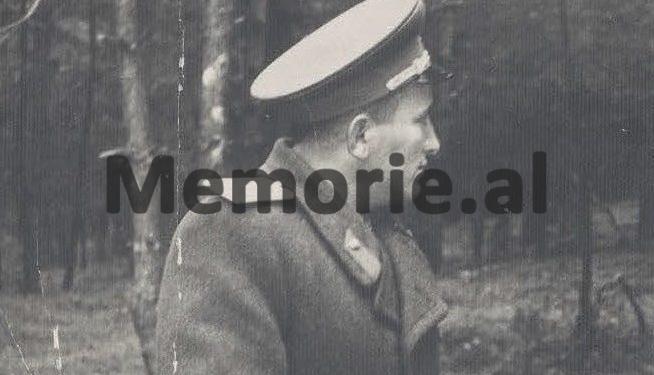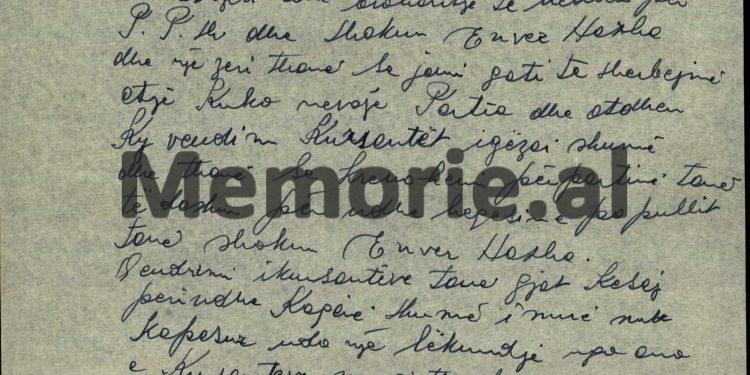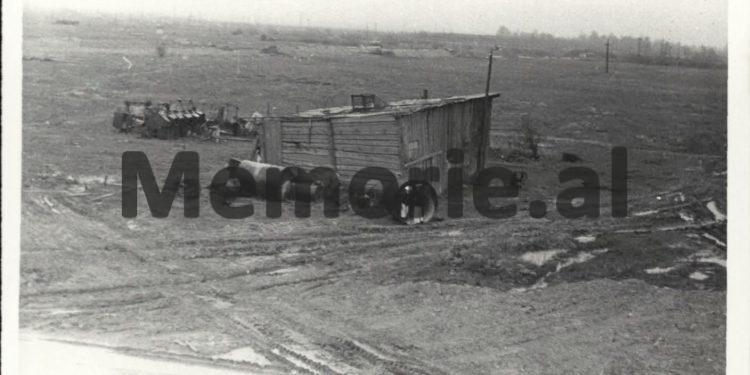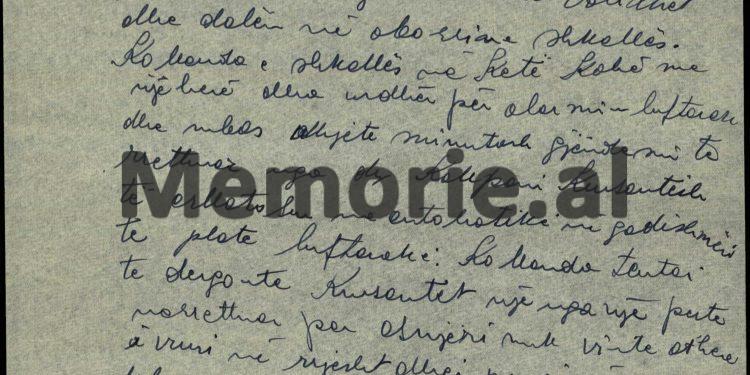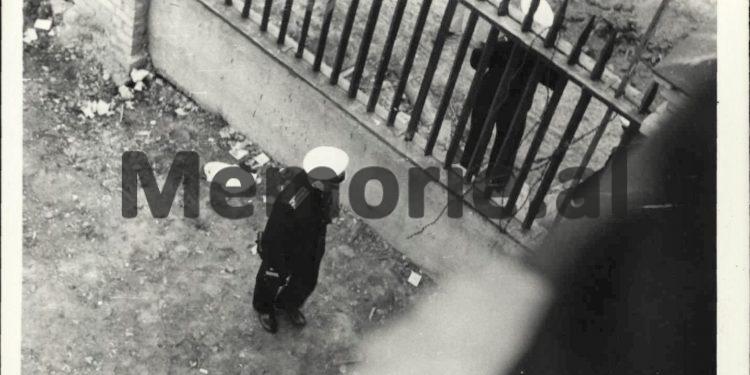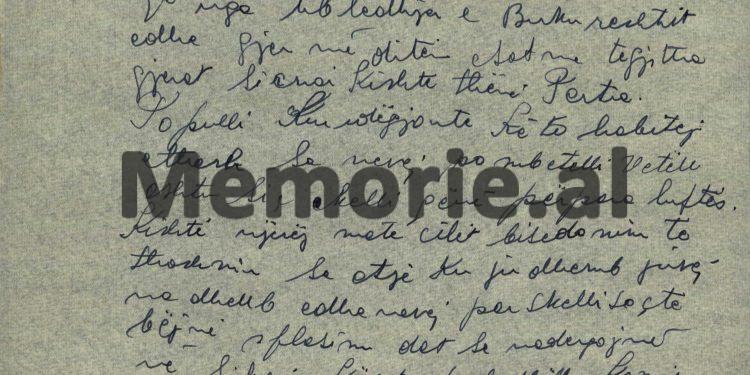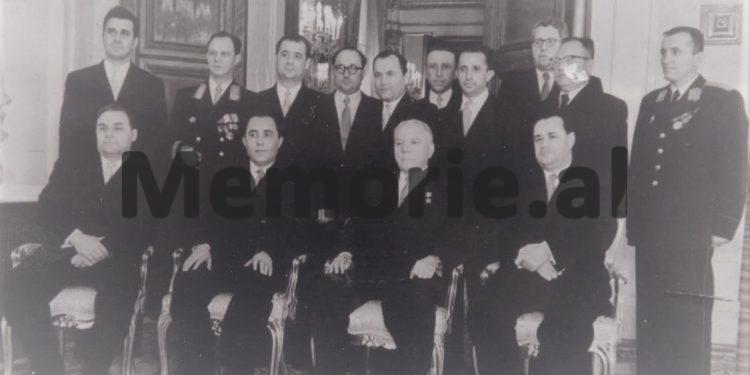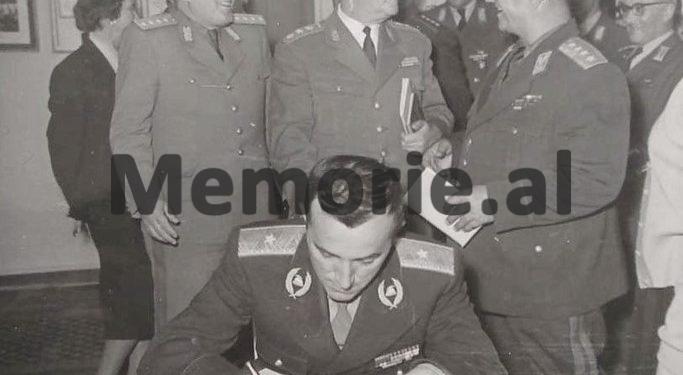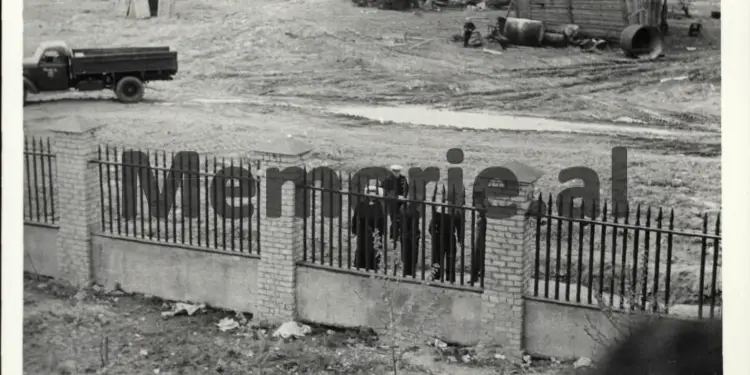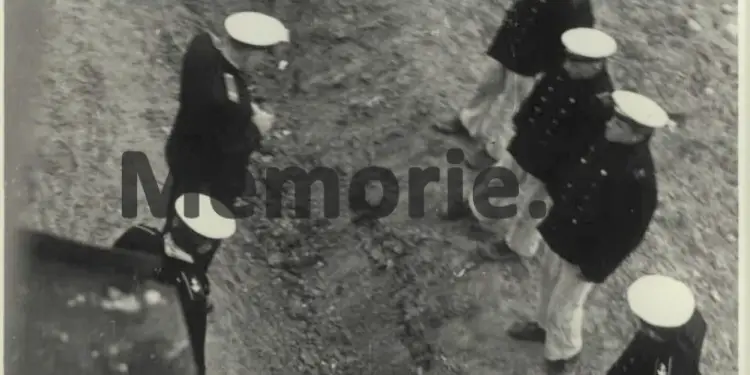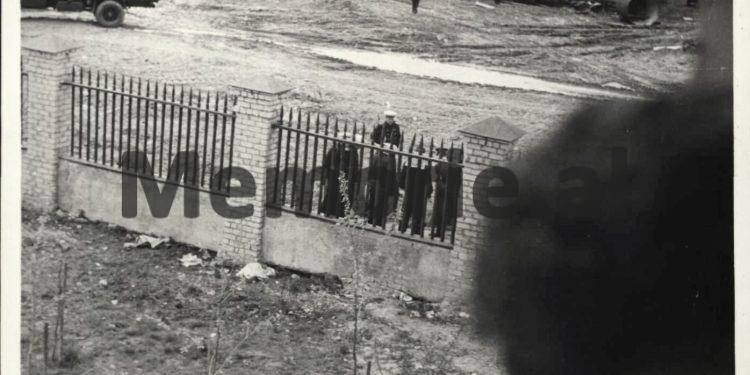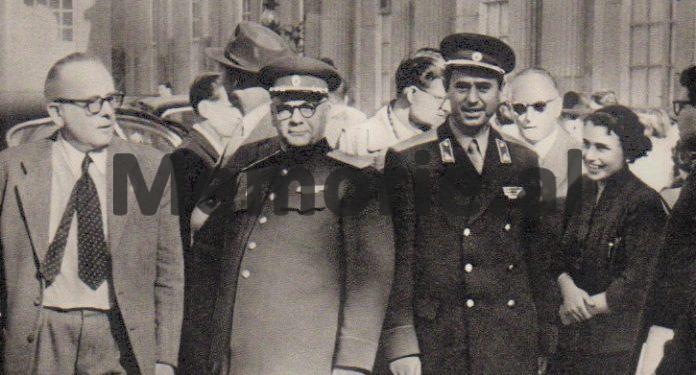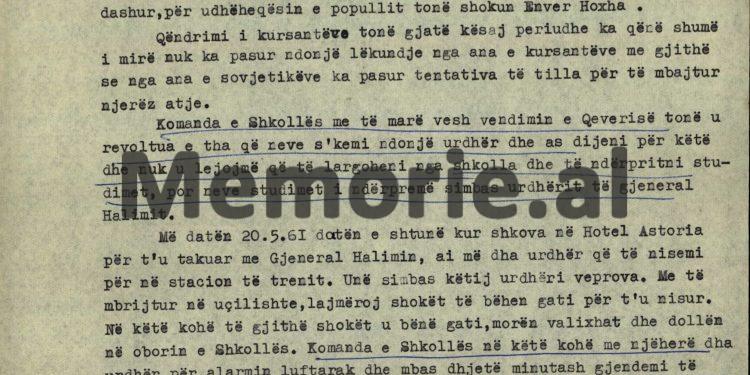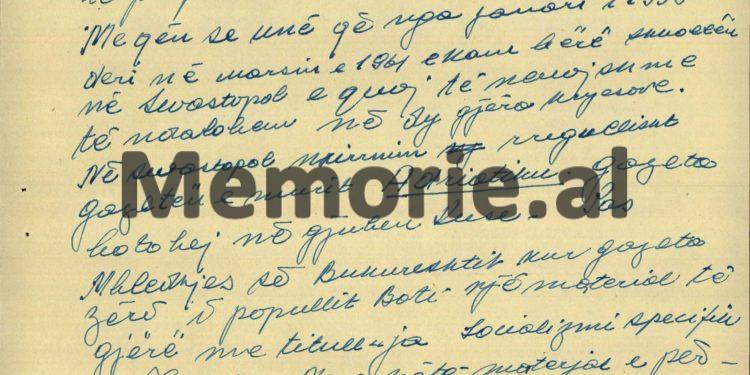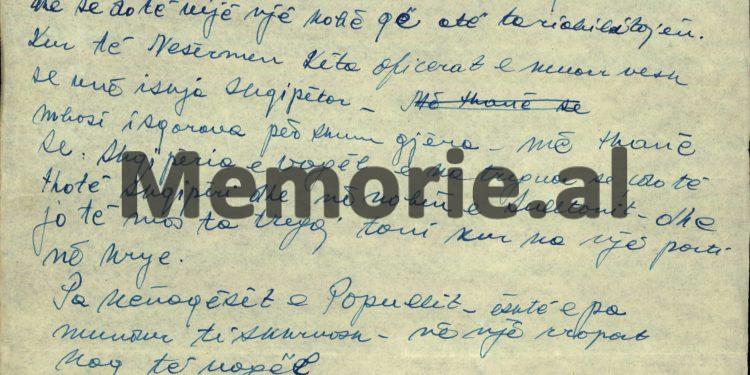Dashnor Kaloçi
Memorie.al publishes some archival documents with the initials “Top secret”, issued by the Central State Archive in Tirana (Fund of the former Central Committee of the ALP) which belong to 1961 and are part of a voluminous folder with letters , reports, information, reports, instructions, petitions, etc., where it comes to the beginning of contradictions and the breakdown of official Tirana’s relations with the Soviet Union, which at that time was very much felt by Albanian students who were then studying in schools and universities of the Soviet Union, who, by order received from Tirana, discontinued their studies and waited for instructions to return to Albania. The complete file of Albanian students in the former Soviet Union, where most of them, mainly those who attended military academies, had major problems and faced many vicissitudes with the official Russian authorities, being put to the extent of the arrest and the intervention of the Albanian military attaché in Moscow, Major General Halim Ramohito, to unblock the situation and return the Albanian military students to their homeland.
Fund: CENTRAL COMMITTEE OF THE ALBANIAN LABOR PARTY
(Foreign Directorate)
Content: REPORTS OF RELATIONS OF FORMER attache MILITARY Albanians in the Soviet Union HALIM RAMOHITO, responsible GROUPS OF SECRETARIES OF ORGANIZATIONS BASIS OF trainees Party and officers studying at school MILITARY USSR where the form: ON THE IMPLEMENTATION OF THE ORDER OF PRA GOVERNMENT , FOR THE RETURN TO THE COUNTRY OF MARINE STUDENTS, ETC. OBSTACLES AND PRICING IN THEIR CONDITIONS ARREST OF BODIES Soviets, STAY GOOD POLITICAL trainees and officers Albanians and the conversations they have had with citizens, trainees officers Soviets, the situation in the Soviet Union Unhappiness POLICY Khrushchev, collecting Bucharest OF MOSCOW, THE ATTITUDE TOWARDS YUGOSLAV REVISIONISM, THE SOLIDARITY OF THE PEOPLE, THE STUDENTS, AND SOME SOVIET OFFICERS, WITH THE RIGHT ATTITUDE OF THE ALP.
Continued from the previous issue
VERY SECRET
RELATION OF THE SCHOOL GROUP PUSHKIN
(Onshore and underwater engineering)
On May 14, 1961, General Halim Ramohito came to the school and informed us of the decision of the Party and of our government on the removal of all trainees and officers studying in the USSR, in the Navy branch. The trainees welcomed this decision with great enthusiasm and applause for the ALP and for Comrade Enver Hoxha. They said unanimously that they are ready to serve where the party and the homeland need. This decision made the trainees very happy and they said that they are very proud of our beloved party, and of the great leader of our people, Comrade Enver Hoxha.
The attitude of the trainees at this time was very good and there was no hesitation on their part though, the Soviets tried to keep some of them there. The school command, upon hearing the order of our government, revolted and told us that we have no order or knowledge of this and as a result, we do not allow you to leave school and drop out of school. But we interrupted our studies by order of General Halimi.
On May 20, 1961, when I went to the Astoria Hotel to meet with General Ramohito, he ordered me to leave urgently for the train station. And I acted according to this order. Upon arrival at the ‘uçilishte’, I inform my friends that they are getting ready to leave. After this moment, all the friends got ready and went out with their entire luggage to the school yard. The Command of the School at this time, gave an immediate order for war alarm and after 10 minutes, we are surrounded by two companies of trainees armed with automatics in full military readiness. The command tried to send the trainees one by one to surround us, but none of them came. She then lined them up and brought them to the siege.
After being surrounded for half an hour, the Soviet cadets dropped their weapons and came to meet us. The command for this action put the initiators in prison. After hearing from the families living near us, they sadly welcomed the news of our departure. The School Command removed the armed soldiers and left them alone around the fence where our building was. So the Soviets took even stricter measures against us, so that we would not get in touch with the people. They told us that: we are doing agitation and propaganda against our country, and we did as instructed by General Halimi, with those we talked to and started from the Bucharest Meeting until today, all the arguments as the Party had told us.
The people when they heard this were astonished and said that we would be left alone as we had been before the war. There were people we talked to and they told us that where it hurts you, it hurts us too, but we have nothing to do because they are deporting us to Siberia. Thus, for example, the commissioner of the faculty who had the rank of major, in a discussion stressed the same thing that we have nothing to do, despite the fact that we are seeing everything that is happening, and this discussion that we had together, remains between us. The company commander, and many others, did the same. All the girls who had had contact with us, gathered at the train station to escort us. The garrison patrols sought to disperse them, but they told them to flee, you foolish gendarmes, where you find out.
But demonstratively, the patrols dispersed the group of girls. When the order came to the school that we would leave, they again kept it a secret on the grounds that we would demand his release and hold public meetings. We, who came out as officers, were accompanied by Security agents from behind. The day we left, the School Command locked its trainees inside so that they would not meet with us. But we, when we got in the cars, started with our slogans: long lives the friendship, long live the party of Lenin and Stalin, long live the Labor Party led by comrade Enver Hoxha, etc. At this point the Soviet trainees, as the doors were closed, went out the window and greeted us, telling us that we would be back there again, that this situation would not last, and so on.
The school command, in order not to encounter cars with people to hear our slogans, kept us on some roads with little traffic. But fortunately, the workers gathered near a canal in Pushkin, heard us cheering, and they greeted us with pickaxes and shovels. We did the same in Leningrad. When we parted with the Soviet comrades who had come to escort us, the Army Security Officers demanded that they be removed and escorted to us. When we got on the train, they escorted us with Security people so that we would not cross from one wagon to another and people would not find out that we were traveling by train. So even when we arrived in Moscow, they came to pick us up straight to the airport.
Secretary of the Basic Organization
Lieutenant Dhimo Sinani d.v.
Printed in 2 copies
E dakt Kap.I.K. Kole.
30.5.1961 Nr. 373 r / sh
1 copy for Com. Center of the ALP
1 copy per Min. of P. Foreign
VERY SECRET
R E L A T I O N
Following the report of the group of trainees of the Pushkin School, who studied Overground and Underwater Mechanical Engineering? The report written by the Secretary of the Party Organization, Comrade Dhimo Sinani, is completely correct. I am adding some things that I consider necessary and necessary, that our Party and the Command need. On May 20, 1961, when the Attaché, Major General Halim Ramohito ordered us to leave, he came to help us at school, Lieutenant Colonel Haki Gjondeda, and on this occasion, I want to emphasize the manly attitude he held before the school command comrade Haki.
Our professors, most of whom were first-class Captains, greeted our departure with great sorrow. For example, Captain Brooke, as he was escorting us, said, “I’m sorry you’re leaving, but do not forget that you are leaving your friends behind.” And some others said that: Khrushchev, is accustomed to give “Polnik vperiod i polnij nazad”, i.e. “The words he says once, he does not say the next time. He turns the words back therefore, you too will return and your right will triumph.”
I was very impressed by the conversation I had with a Security officer of our school, who escorted us to the train station in Leningrad. In the conversation I had with him, he told me: “During World War II, the Germans surrounded 300,000 Soviet soldiers here, where Nikita Khrushchev was the commander. They were all killed and I, personally, my father and brother were killed. This fact, he said, as well as many other facts, shows that those who committed crimes during the war are commanding us and we who have suffered are submitting to them that we do not “We have what else to do. We are scared. I understand that our government is putting political and economic pressure on Albania, but anyway, your party will win,” he said.
In a conversation I had on May 17, 1961 with a worker and an engineer at the Jerzhovskik plant in Leningrad, they asked me: “Why is Tirana farther from Moscow than from Beijing?” I explained to you that the question was not asked correctly and I gave the necessary explanations. But they answered me in unison, saying, “If you are going to build communism in the style of Khrushchev, you will never build it, because he (ie Khrushchev) has made it our endless goal, building of communism “. Since I did school in Sevastopol from January 1958 to March 1961, I consider it necessary to dwell on two main things.
The wall newspaper “Adriatic” was regularly published in Sevastopol. The newspaper was published in Russian. After the Bucharest Meeting, when the newspaper “Zeri i Popullit” published an extensive article entitled “Here is Tito’s specific socialism”, we translated this material into Russian and published it in the newspaper. After that we published an article on the occasion of the birthday of Comrade Enver Hoxha, in his activity in our simple newspaper, he clearly raised the fight that our glorious Party has made against the revisionism of the renegade Tito. The school’s deputy for political work, Captain II Djukov, advised me not to write about the Yugoslav issue in the newspaper, and not to make caricatures of Tito.
They finally asked me, as the Secretary of the Organization and head of the group, to strictly forbid the newspaper’s editorial office from publishing articles and cartoons against Tito. To us, we did not do so, but on the contrary, when the booklet in Russian, “Yugoslav concentration camps and prisons” came to us, we distributed it among the school officers and trainees. Then the Commander of the School, Rear Admiral, Krasteljov, using the solemn meeting of November 29, the day of the liberation of Albania, asked me not to read in this report the phrase that modern revisionism is led by the Yugoslav, who is the main enemy of world communist movement. Since we refused, he called me and warned me of expulsion, as an unwanted man.
On December 12, I was hospitalized in Sevastopol. When the doctor came to visit me, after learning that I was Albanian, he discussed with me for two hours in his office, explaining the whole chronology of events, from the Bucharest Meeting to the one in Moscow. When I went to dinner to sleep, there were 6 Soviet officers in the room, one of whom had been to Albania. They started a political discussion between them, thinking that I too was a Soviet officer. He who had been to Albania, among other things, said: “Now from the great communists, there are only two people left, Mao Ce Duni and Enver Hoxha”.
When I asked him: “What about Khrushchev”?! He replied, “You do not understand politics.” This military man began to explain to me the process of turning metal into ships and cruisers, and stressed that the day would come when the initiators of this action would be tried. “Another stated that:” In case of war, only Albanians “and the Chinese would fight side by side with the Soviets.” on the other hand, it did not leave the state unaided. “This evening I heard for the first time from these military, that Beria was not an agent, and that there would come a time when he would be rehabilitated. The next day, when these officers found out that I was Albanian, they told me that: Little Albania has shown itself since the time of the Turkish sultan, and not now that it has its own Labor Party. It is impossible to describe the dissatisfaction of the Soviet people in such a small report./Memorie.al
The next issue follows
Group Manager
Captain II Sadik Serjan Muho d.v.
Printed in 2 copies
E dakt Kap.I.K.Kole
30.5.1961 Nr. 376 r / sh
Copy 1 Kom Qënd of ALP
Copy 2 Min P. External




